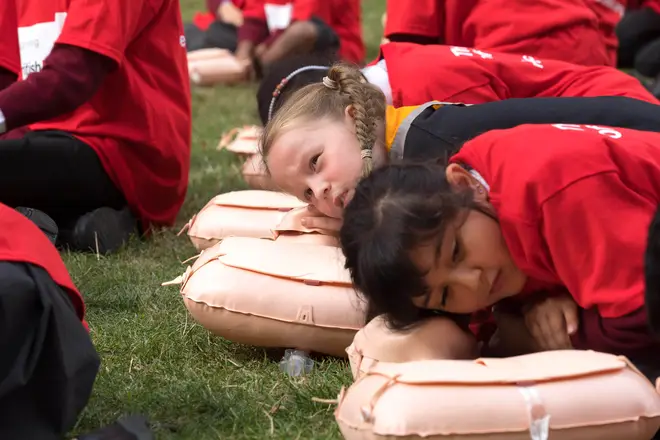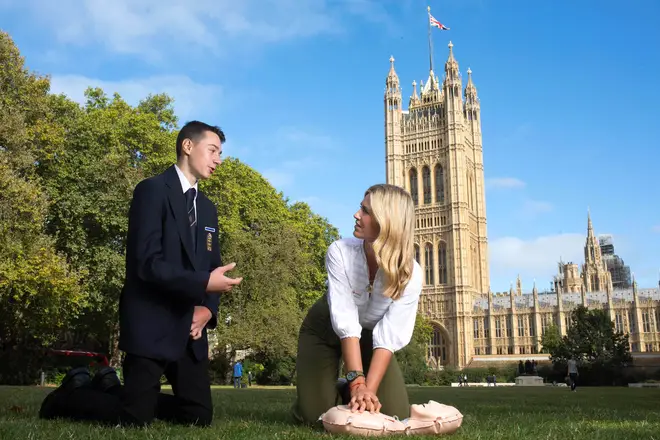
Nick Abbot 10pm - 1am
13 September 2019, 09:47

A British Red Cross Survey has found that over half of children would not know how to act in an emergency.
New research has found that despite 23 per cent of children saying they had been in a situation where someone needed first aid, most children said they would feel "helpless" if someone needed first aid.
The British Red Cross survey also found that nine in 10 children said they would feel "more confident" in an emergency situation if they knew first aid.
86 per cent also agreed that learning how to save a life is "one of the most important things you could be taught in school".
Education Secretary Gavin Williamson said that the response is positive and shows that children are "enthusiastic" to learn more about first aid.
However, the British Red Cross has called the research "concerning".
The charity suggested that Wales, Scotland and Northern Ireland should join England in making first aid lessons compulsory in schools.
91 per cent of parents support compulsory first aid lessons for pupils.
A previous British Red Cross survey found that up to 59 per cent of deaths resulting in injury could be prevented if first aid had been administered before medics arrived.

Thomas Nolan, a 14-year-old from Herne Bay in Kent, who helped to save the life of a man he saw collapse while waiting to catch a bus to school, said everyone should have the opportunity to learn first aid.
He said: “It gives you the ability to help out properly. Think about it, it could be your parents or grandparents."
“If you were stuck in a situation and didn’t know how to help – how would you feel?”
From 2020, the Government is rolling out plans to ensure all pupils in England have been taught basic first aid by the time they leave secondary school.
Children will be taught how to administer CPR, the purpose of defibrillators and basic treatments for common injuries.
Education Secretary Gavin Williamson said it is “fantastic” that young people want to learn about potentially lifesaving skills.
The charity polled 1,000 parents and 1,000 children as part of its research.